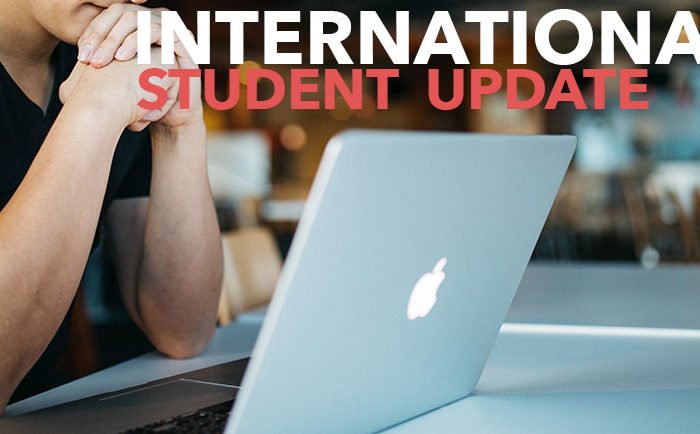Six thousand caregiver applications will be prioritized by the end of 2021; 1,500 by June 30, 2021
A new processing plan drafted by the IRCC for 2021 which caters to caregivers from abroad has now been made official. In brief, listed below are the new features of this plan:
- Approve Permanent Residence to 6000 eligible caregivers (including their immediate family members) who have completed their in-Canada work experience by December 31, 2021.
- For Home Child Care Provider and for Home Support worker pilot applications, at least 1500 first-stage decisions shall be made by June 30, 2021.
- Guarantee that applicants receive acknowledgment of receipt letters by May 31, 2021.
Caregiver Eligibility Criteria :
Applicants must meet the following criteria to be approved:
In addition, applicants must provide proof of either of the following:
- at least 24 months of qualifying Canadian work experience
- a job offer and the ability to perform the work
Education:
The applicant should have ANY of the following:
- Canadian one-year post-secondary (or higher) educational credential
- foreign educational credential and an Educational Credential Assessment (ECA) report issued by an organization designated by IRCC.
Foreign Credentials:
For applicants with a foreign educational credential, the ECA report must
- indicate that the credential is equivalent to a completed Canadian one-year post-secondary (or higher) educational credential
- be less than 5 years old on the date of application receipt
have been issued on or after the date the ECA organization was designated by IRCC
Applicants With 24 Months of Experience
The applicant should submit proof of qualifying full-time work experience (at least 30 hours per week) of at least 24 months in Canada in the last 3 years before applying. The work done must meet the following requirements:
Home Child-Care Provider Pilot applicants must have qualifying work experience as Home Child-Care Providers (NOC 4411). In this job, they must have looked after children under the age of
Note: Foster parents cannot apply under this pilot program.
Home Support Worker Pilot applicants must have qualifying work experience as Home Support Workers and related occupations (NOC 4412).
Note: Among the sub-occupations under NOC 4412, housekeepers and related occupations are not eligible to apply under the home support worker class. It is the applicant’s job to convince the IRCC officer that they mainly performed the personal care and support services as outlined in the NOC description (other duties such as housekeeping duties including laundry, washing dishes etc., may be included only as additional responsibilities).
Breaks in work experience: At the time they apply for permanent residence through the Home Child-Care Provider Pilot or Home Support Worker Pilot, applicants do not have to be employed.Canadian work experience does not need to be continuous to qualify, but the period of 24 months of required employment does not include
- any extended absence from Canada (including any time worked for an employer outside Canada)
- periods of unemployment
- prolonged sickness
- parental leave
A reasonable period of vacation time will be counted towards meeting the work experience requirement. For example, a 2-week period of paid vacation leave within a given 52-week period in which the applicant was engaged in qualifying work would qualify, whether that period of vacation was taken in Canada or outside Canada. Any periods of self-employment or periods of employment during which the applicant was engaged in the full-time study will not be included when calculating the period of qualifying work experience. All applicants must have had temporary resident status during the period of work experience acquired in Canada. Only authorized work will be counted towards the work experience requirement..
Applicants Without 24 Months of Qualifying Canadian Work Experience
Applicants who do not have at least 24 months of qualifying Canadian work experience must also provide proof of both of the following:
Job Offer
- from a single Canadian employer
- The employer cannot be an embassy, high commission or consulate in Canada.
- The employer can comprise more than one individual (for example, Mr. and Mrs. Smith), but must constitute one simple employer (that is, one single CRA business number).
- for a position outside the province of Quebec
- for full-time employment (full time means at least 30 hours of paid work per week)
- non-seasonal
- in a home child-care provider or home support worker occupation
- genuine and likely to be valid when the applicant is issued the initial occupation-specific open work permit
The job offer must also describe the work and duties to be performed by the applicant. These duties must align with the actions described in the lead statement for the eligible occupation, as set out in the occupational descriptions of the NOC.Note: The main duties of a job offer cannot be for foster parent or housekeeper occupations.
Ability To Perform The Work
Note: If the applicant has provided proof of at least 24 months of eligible Canadian work experience in their initial application, they do not need to be assessed for their ability to perform the work.Applicants who have not obtained at least 24 months of qualifying Canadian work experience must demonstrate that they are able to perform the work described in the lead statement of the occupational description of the NOC.
- NOC 4411 if applying for the Home Child-Care Provider Pilot
- NOC 4412 if applying the Home Support Worker Pilot
Failure to do so may result in a refusal.Note: Foster parents are excluded from NOC 4411 and housekeepers are excluded from NOC 4412.
Supporting Documentation
When assessing an applicant’s ability to perform the work, officers can refer to supporting documentation provided in the application. This may include, but is not limited to
- proof of relevant previous work experience (either paid or unpaid), for example:
- employer reference letters
- employment records
- work contracts
- pay stubs
- copies of relevant education credentials or training, which can include diplomas or certificates
- a copy of the applicant’s most recent work permit in Canada (if they’ve been working in Canada)
The new public policy will take effect on May 3, 2021. Applicants to the Home Child Care Provider and Home Support Worker pilots in 2020 will not need to reapply.





